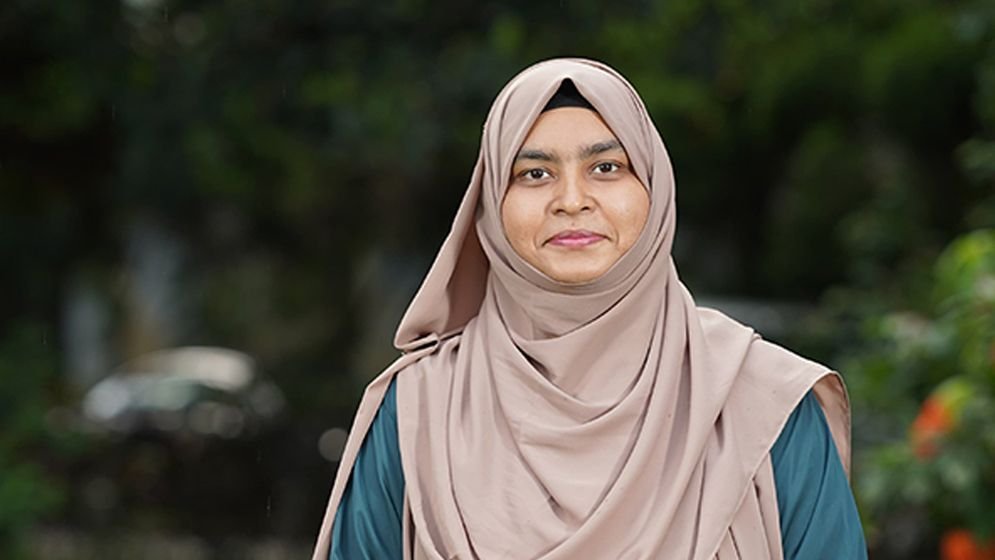Key Highlights:
- Ayesha Siddiqua Meghla posted on social media about, selected protests and criticism of double standards regarding sexual violence in Bangladeshi society.
- Silence and lack of demand for justice in the rape of a 13-year-old madrasa student
- Media’s use of different language based on religious identity
- Discrimination and unequal protests against women due to dress and behavior
- Demand for equal justice and protests for all
JUCSU Assistant General Secretary (AGS) Ayesha Siddiqua Meghla, in a recent Facebook post, strongly criticized the selective protests and double standards in Bangladeshi society regarding sexual violence and abuse of women.
Ayesha Siddiqua Meghla Statement
কলকাতায় ধর্ষণ হলে বাংলাদেশ থেকে প্রতিবাদ জানানো হয়৷ অথচ বাংলাদেশে ১৩ বছরের একজন শিশু তিন দিন ধরে ধর্ষিত হওয়ার বিচার চাওয়া হয় না। সেটা নিয়ে মিডিয়ায় প্রতিবাদ দেখি না। রাস্তায় মানুষ দেখি না। কারণ সে “মাদ্রাসার শিক্ষার্থী”।
Translation: When a rape happened in Kolkata, Bangladesh protested. But in Bangladesh, justice is not sought for a 13-year-old child who was raped for three days. I don’t see protests in the media about that. I don’t see people on the streets. Because she is a “madrasa student.”
She added that,
মসজিদের ইমাম ধর্ষণ করলে নিউজের হেডিং এ “ইমাম” শব্দ থাকে। কিন্তু মন্দির কমিটির কেউ ধর্ষণ করলে সেটা “এক লোক” হয়।
Translation: When a mosque imam rapes, the news headlines include the word “Imam.” But when someone from the temple committee rapes, it’s “one person.”
She also addeed,
যখন কোনো নারীকে “ওড়না কই”, “এত বড় টিপ কেন কপালে”, “মেয়েরা রাস্তায় কেন সিগারেট খাবে” বলে মব তৈরি করা হয় সেটার প্রতিবাদ করে বিচার চাওয়া হয়। কিন্তু বোরকা পরা, নিকাব পরা মেয়েদের কেউ উত্তক্ত করলে সেটার প্রতিবাদ হয় না।
Translation: When a mob is formed asking a woman, “Where is her headscarf?”, “Why is there such a big mole on her forehead?”, “Why do girls smoke cigarettes on the street?”, they protest and demand justice. But when someone harasses women wearing burqas or niqabs, there is no protest.
She further added that,
ইমামের করা ধর্ষণ যেমন অপরাধ, মন্দির কমিটির এক সদস্যের ধর্ষণ করাও অপরাধ। কাউকে ওড়না কেন পরে না, টিপ কেনো দিলো, সিগারেট কেন খাচ্ছে বলে মব তৈরি করা যেমন অপরাধ। তেমনি নিকাব, হিজাবের জন্য উত্তক্ত করা, বৈষম্য করাও অপরাধ।
Translation: Just as rape by an imam is a crime, rape by a temple committee member is also a crime. Just as creating a mob because someone doesn’t wear a headscarf, why they tipped someone, why they smoke cigarettes is a crime. Similarly, harassment and discrimination for wearing a niqab or hijab are also crimes.
She sadly claimed that,
অথচ আমরা কেবল এক সাইডের জন্য প্রতিবাদ করতে দেখি। এক পক্ষের জন্য মশাল মিছিল হতে দেখি। এক পক্ষের অধিকারের জন্য তথাকথিত নারীবাদীদের কাজ করতে দেখি।
Translation: Yet we only see protests for one side. We see torchlight processions for one side. We see so-called feminists working for the rights of one side.
Source: Ayesha Siddiqua Meghla/Fb



















